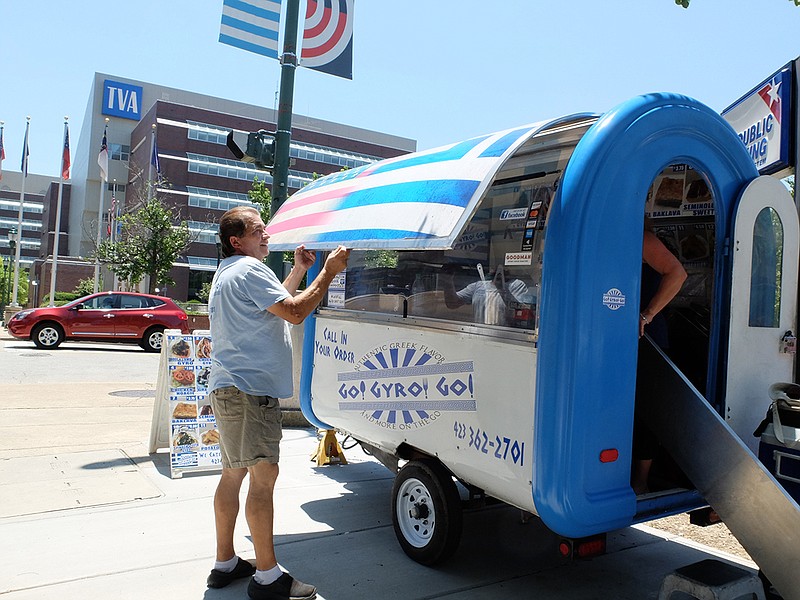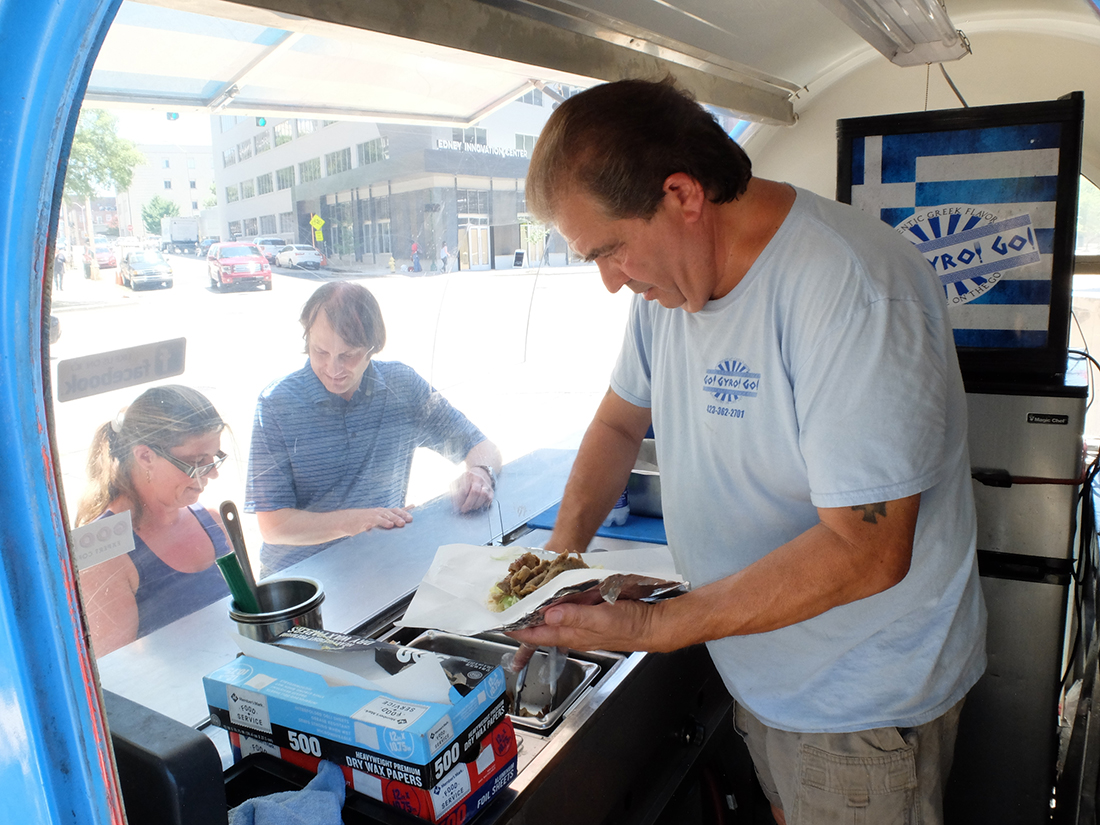On Tuesday, Chattanooga City Council members will hear proposed changes to a new food truck ordinance that city staff said aims to make downtown a more welcoming space for the increasingly popular mobile kitchens.
Big cities as close as Nashville have been touted as some of the most food truck-friendly cities in America. But local residents and food truck vendors have long said that Chattanooga is behind the times when it comes to regulating the rolling kitchens.
In 2012, the city passed an ordinance stating the mobile food units are "prohibited from operating upon city streets, sidewalks or public property within the Chattanooga city limits." Last fall, a petition began circulating online asking for the city to rethink its approach, garnering nearly 5,000 signatures. Lisa Dunny, owner of Spill the Beans food truck, wrote that repealing the ordinance would create a better environment for people of all ages.
"Chattanooga is such a great town that has evolved so much in the last five years, it's time to remove this ordinance and let our great local food trucks set up on roads and serve the people," she wrote.
Blythe Bailey, director of the city transportation department, was asked to help draft the new ordinance that council members will read at Tuesday's meeting. Bailey said the ordinance sets up a "Mobile Food Unit District" where food trucks could operate, which includes downtown and the surrounding neighborhoods such as North Shore, Highland Park, St. Elmo, Lookout Valley and other neighborhoods east to Missionary Ridge and south to the Georgia border.
But if the ordinance and district is approved, food truck vendors can't just go set up shop the next day and start serving sandwiches. A resident or vendor must then fill out an application with the city asking for an area within the district to be established as a "mobile food unit zone," Bailey said.
The application has some requirements, including a list of signatures of 75 percent or more of the property owners in the area who support food trucks setting up there. If the "zone" is approved then a food truck vendor can call the city and ask to reserve a space. Food trucks are only allowed to reserve a space for up to seven days at a time, he said.
"Some brick-and-mortar restaurants recognize the idea of multiple restaurants in one location can elevate the business for all of them while some restaurant owners may not see it that way," Bailey said. "We're (city) not taking a position – if the neighborhood or area shows they are supportive then we will approve the food truck zone."
Currently, there are 17 mobile food trucks with active permits, according to the city.
Jim Masiella, owner of the California Smothered Burrito food truck, laughed when hearing the proposed regulations. He has been operating his food truck for six years and typically parks on private property both downtown and elsewhere with permission. He serves up burritos smothered in green chile sauce and white queso, taco salads, nachos, quesadillas and more.
Masiella said the proposed ordinance doesn't impress him, stating that's a lot of hurdles to jump through before being able to serve anyone.
"I have no intentions of setting up downtown anyways," he said. "Unless, it's a new food truck that doesn't have any clients When I first started up and had no place to go, I probably would have jumped right on this."
With seven employees, Masiella said he has enough of a following by handing out lunch at BlueCross BlueShield and Unum offices downtown, parking at the Chattanooga Market on Sundays and catering weddings or other events. Many residents have seen food trucks within city limits already because of special event permits that allow them to be there. Food trucks are a common sight at the Nightfall concert series at Miller Plaza during the summer.
Masiella said he wishes the city would embrace food trucks like other cities do such as Nashville or Austin, Texas.
"The politicians from day one have been anti-food trucks, but the people that live here support them," he said. "I couldn't have gone six years if people didn't want food trucks here."
One potential loophole in the ordinance is that food trucks would be able to serve at city parks and youth and family development centers without a zone being established first. Vendors would just need to get approval from the city's parks department or youth and family department.
All food trucks - no matter if they serve customers on public or private property - are required to have the proper licenses, permits and certifications from the city, county and state.
"It meets our mission to enliven our public spaces, but of course with guidance and regulation," Bailey said about the new ordinance. "I think we've created a really good mechanism that's driven by the community and approval by property owners. It's just another thing to make our city great."
Contact staff writer Allison Shirk at ashirk@timesfreepress.com, @Allison_Shirk or 423-757-6651.

